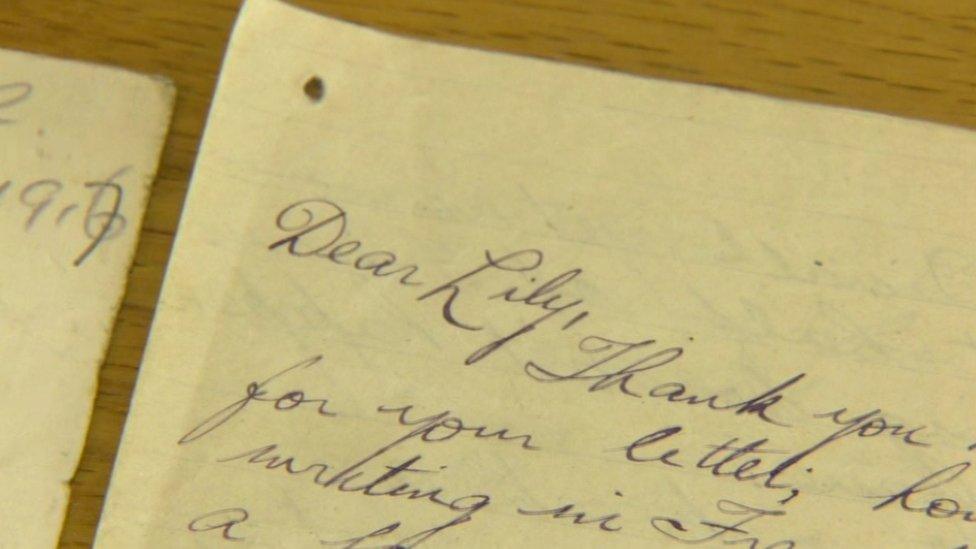Battle of the Somme: A Derry soldier's interview uncovered after 33 years
- Published
A BBC interview with a soldier who survived the Battle of the Somme has been uncovered by his family
A BBC interview with a soldier who survived the Battle of the Somme has been uncovered by his family after 33 years.
Jack Rutherford, from Londonderry, was just 16 years of age when he left his home in Barrack Street to join the Army.
A year later, on 1 July 1916, Jack would find himself fighting on the Western Front. Of the 200 members of his Machine Gun Corps unit, only 21 survived the onslaught.
Not only did Jack survive, he went on to fight at Ypres and Passchendaele before being wounded at the Battle of Cambrai.
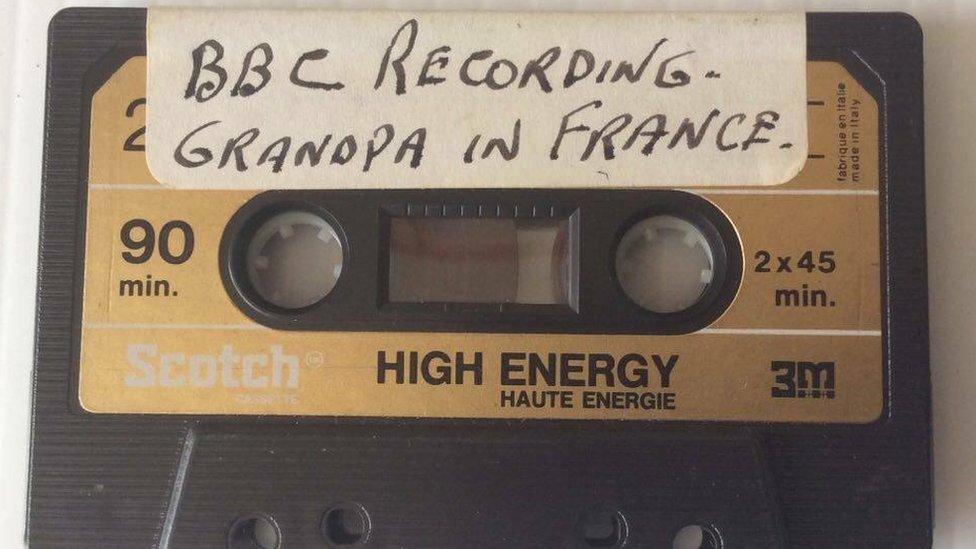
Jack was interviewed by local historian and broadcaster Ken McCormack
Incredibly, he was interviewed about his war-time experiences on BBC Radio Foyle back in the 1980s.
His grandson, John Boyle, had a copy of the interview, but had never listened to it.
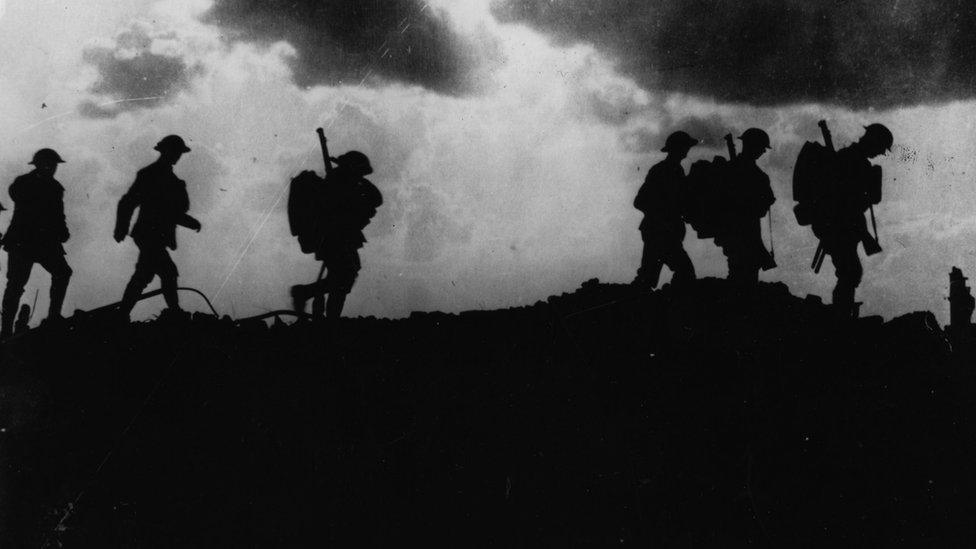
British troops moving up to the trenches, 2.5 miles east of Ypres
"I had never heard that interview until I dug it out to give to you. It's spine chilling but not in a bad way - in a very, very good way. It's also very comforting to hear my grandfather's voice.
"He was, despite all of the tribulations and travails that he might have been through in his life, quite a happy person and quite a jolly man.
"It's a nice thing to hear. He died in 1983 so I hadn't heard his voice since 1983," John said.
The tape was rather simply and very modestly entitled "Grandpa in France". In it, Jack reveals what life was like on the front.
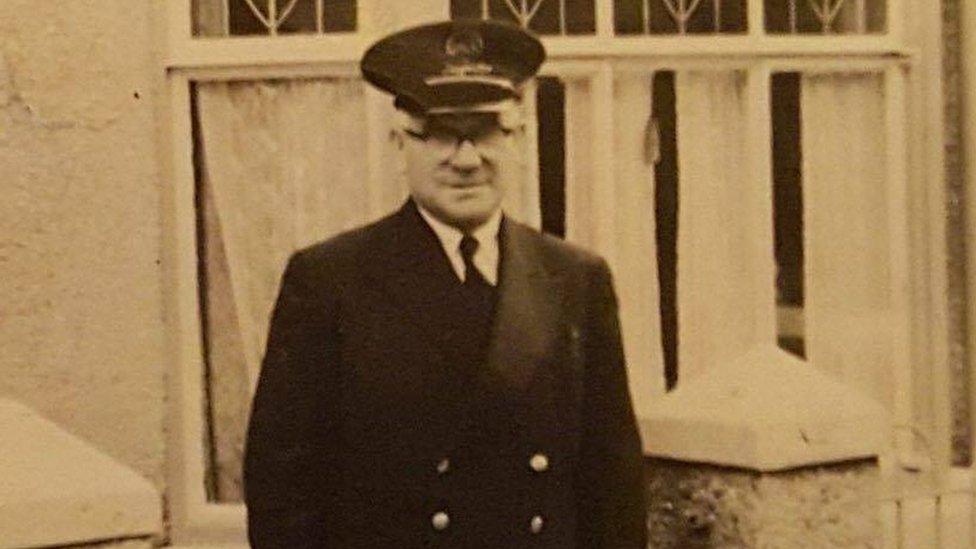
Jack in his Londonderry and Lough Swilly bus company inspectors uniform
Jack's story
"The trenches in the winter were terrible. There's no one in this world who'll ever know what the first world war soldier went through," Jack said.
"You got food but it was just a cup of tea and a bit of bread, maybe the odd bit of stew. I remember one night lying in the dugout and trying to see who could fill the matchbox first with lice.
"There was always somebody injured sometime through the day or through the night.
"As a matter of fact, I remember burying a couple myself. We had to do it at night because it couldn't be done during the day because of the Germans."
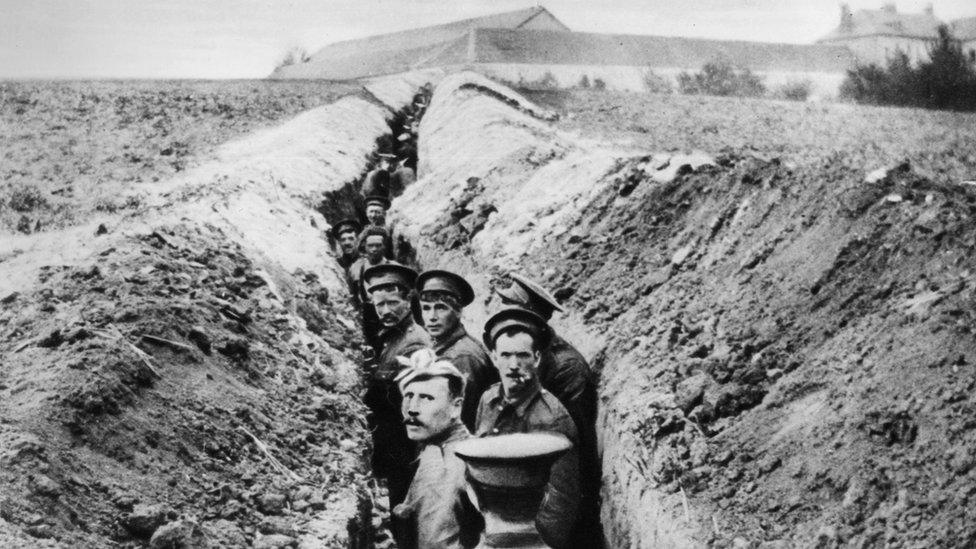
British soldiers lined up in a narrow trench during World War I
Battlefield
"I wasn't long in the battle, we went over at a quarter to eight in the morning and I wasn't five yards before I got the bullet in my thigh.
"I was taken to the clearance station and then to hospital. On the battlefield the sights I saw - men with their legs off and holding their legs," said Jack.
Jack's recollections are as startling to hear now as they were then, maybe even more so given the loss of a direct link to the war.
Despite this, there are still moments of humour from the man described by his grandson as "jolly".
"We made a stand there, we didn't lose so many men but most of them were captured...but I was too quick for them!"
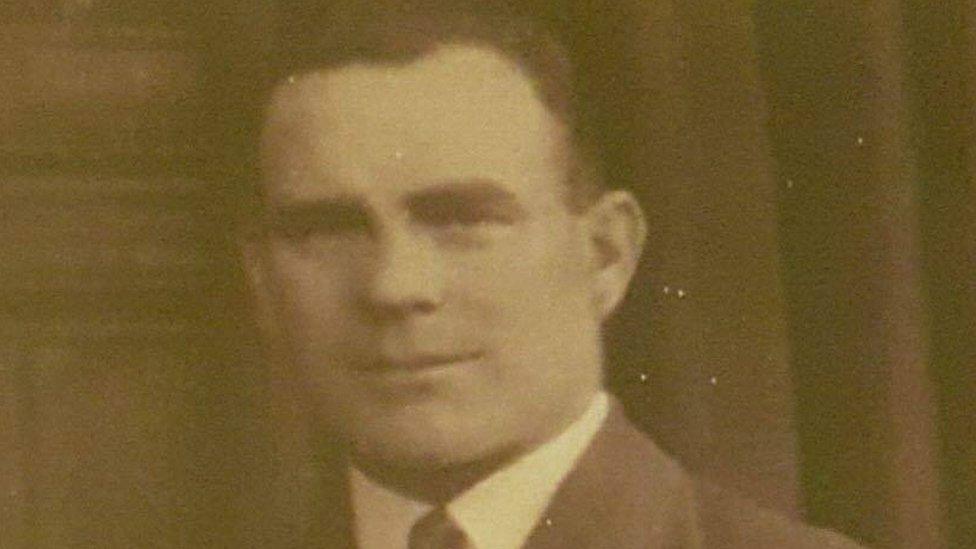
Jack Rutherford in his mid-thirties some ten years after World War One
John said that although he knew about his grandfather's time in the war, it wasn't something that they ever discussed.
"I did know and I'm proud to say that I did know my grandfather. He died when I was 17 and interestingly, when he was 17 he would have been fighting on the western front.
"When I think of how he would have been involved in that horrible conflict, it's important to remember that Irish men from all sides suffered the same and so it does make you emotional.
"I think about that and I think about how senseless it was. I do know that he would have reflected upon it to the day he died and I know that he, to quote himself, he thanked God every day that he survived it," John said.
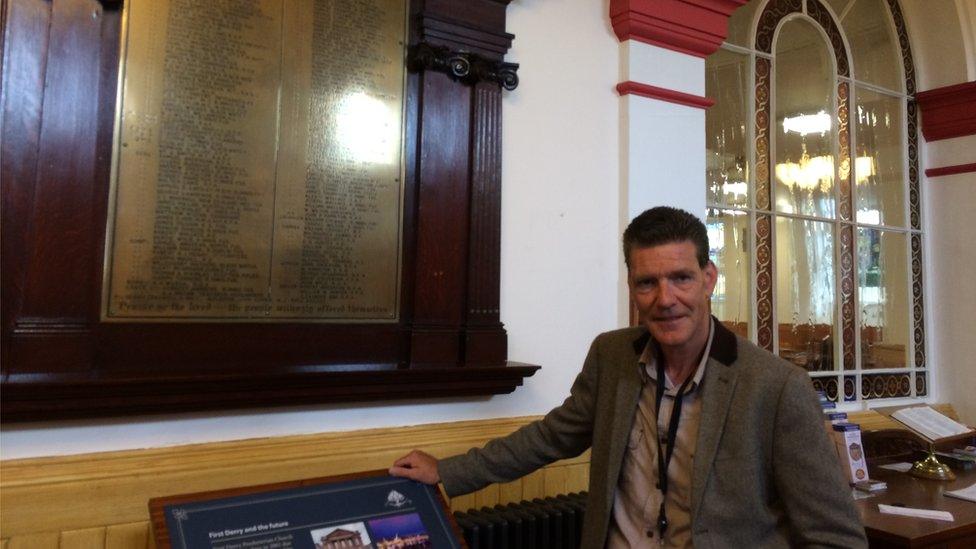
John Boyle beside a plaque bearing his grandfather's name
Home
In the final passage of the interview, Jack recalls his return from the front line at the end of the war.
"I came over by boat from Holyhead to Dublin and got the train home and she wasn't fast enough.
"When I got home on the 1st of July, I went back into my job on the shipyard until it closed.
"For a few years after the war it did come back to me and annoyed me but thank God I got over that. It was a terrible time, I wouldn't like to think any of my sons would have to go through it," he adds.
Jack Rutherford's name is listed on a first World War plaque inside First Derry Presbyterian to honour those who fought and survived.
Poignantly, it is set adjacent to another plaque which lists soldiers who never did return home.
- Published17 June 2016
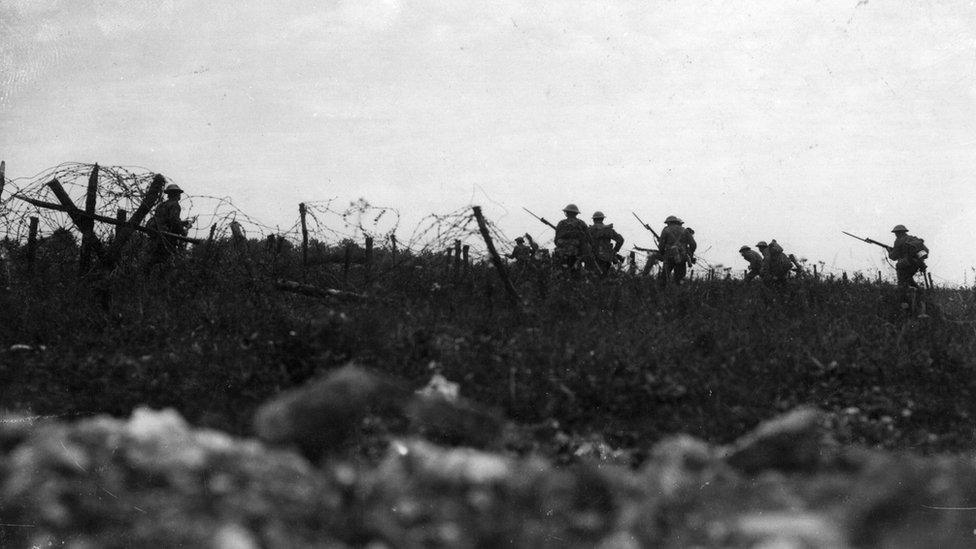
- Published27 June 2016
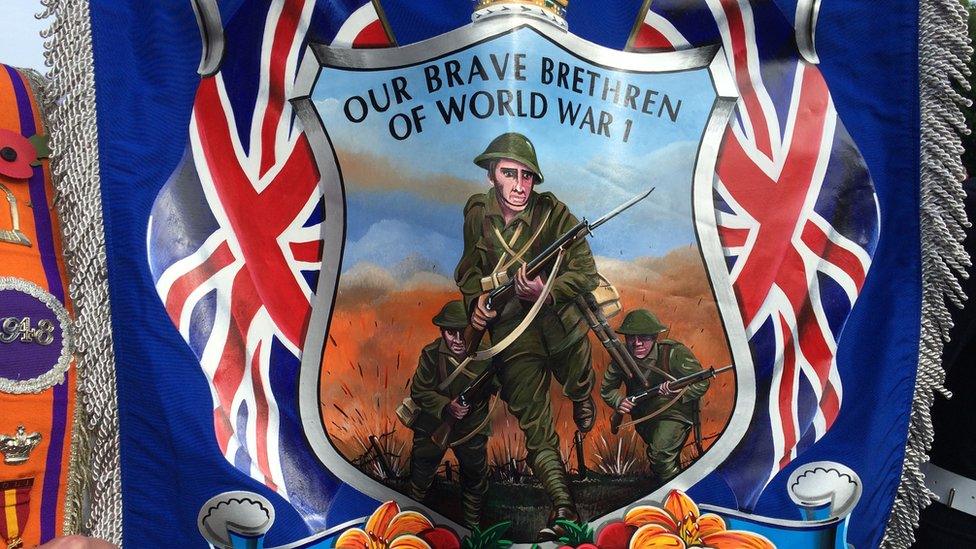
- Published23 June 2016
